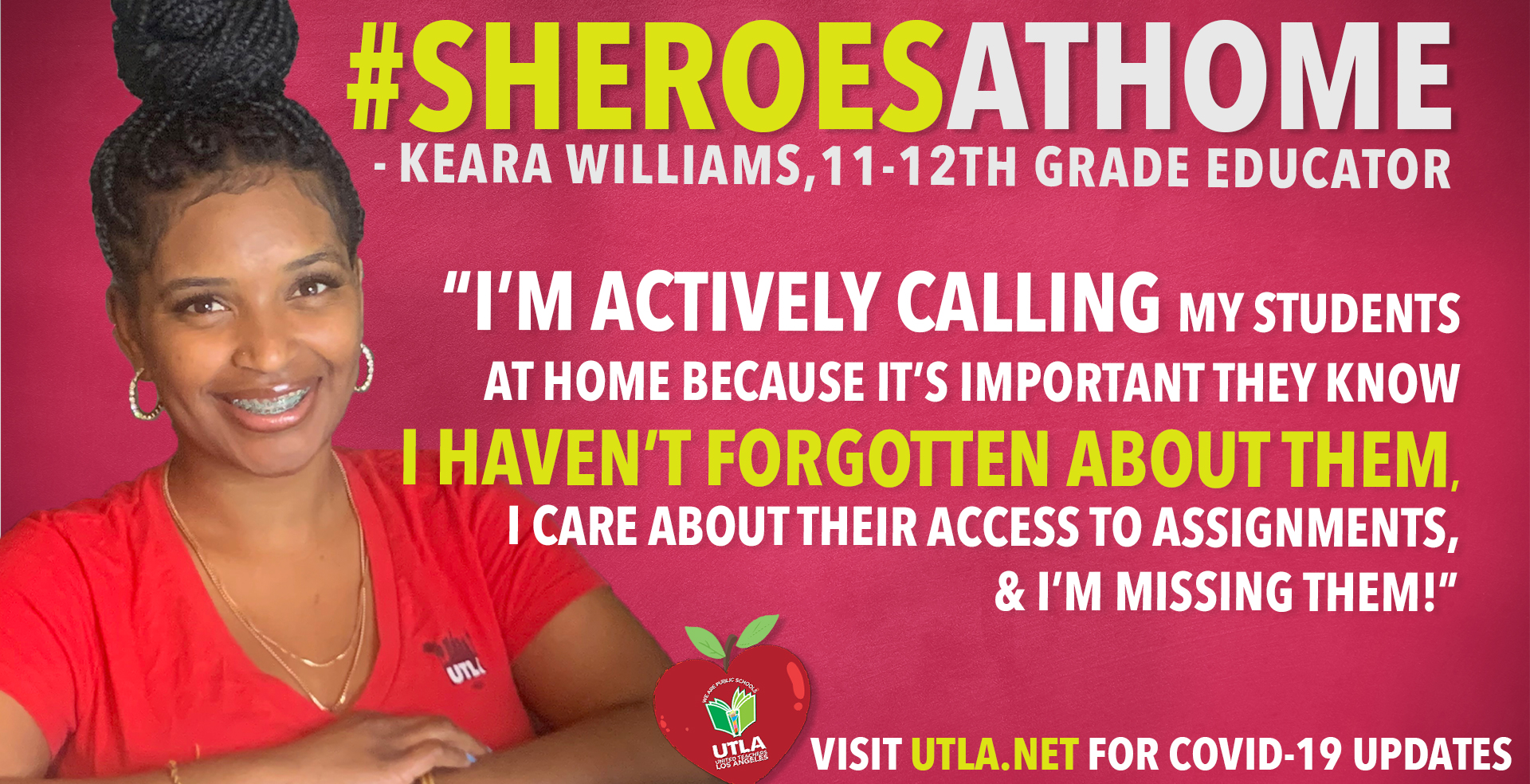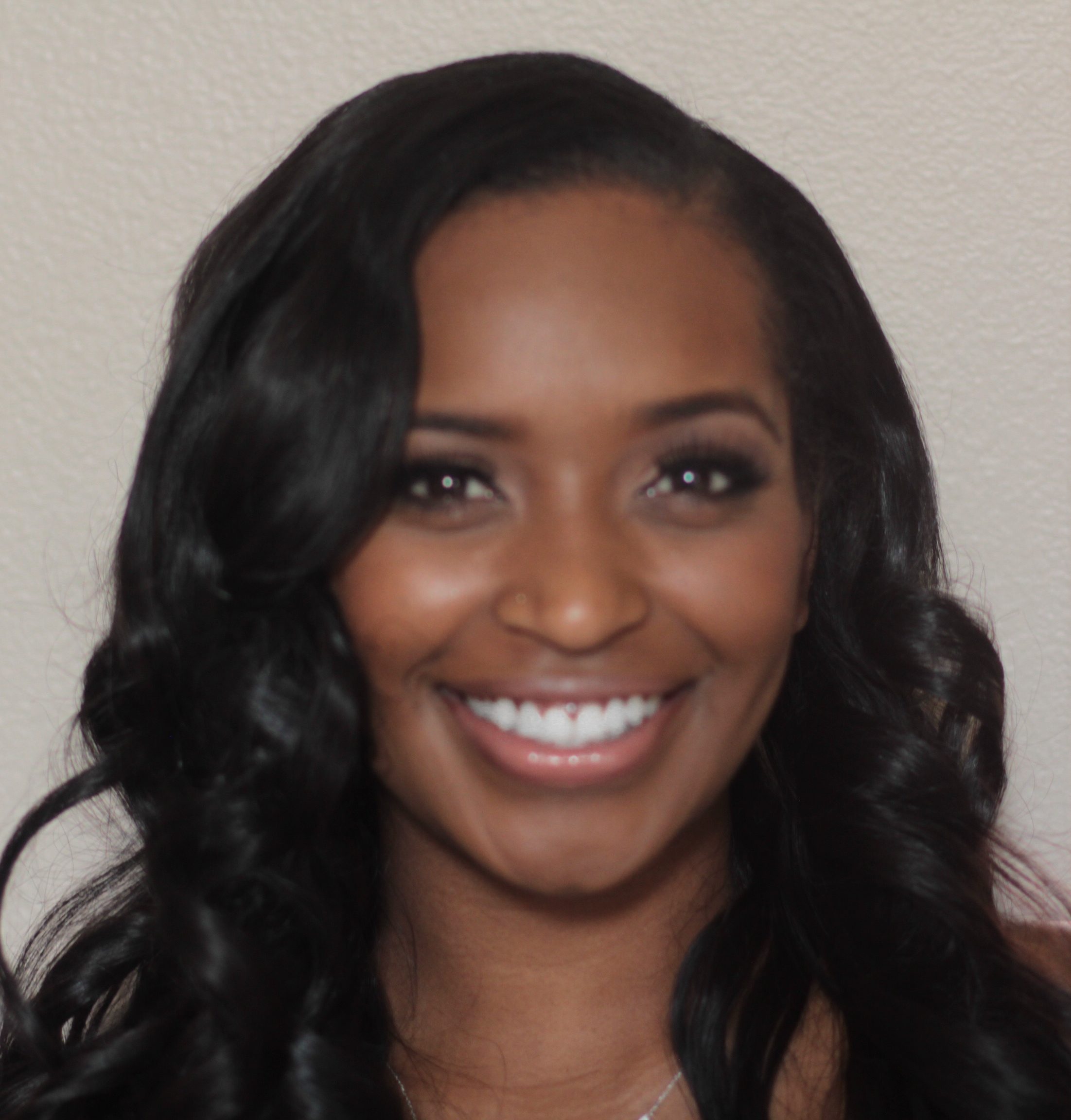
UTLA called Williams a “she-ro” for her fruitful connections with students.
Some teachers don’t take no for an answer. Keara Williams is in that category.
When schools closed due to the coronavirus, she tracked down students who did not respond to the many messages she sent, and somehow managed to sign them up for distance learning.
When students thought they couldn’t graduate, she met with them online to offer credit recovery so they could receive their diplomas.
And even though her students are mostly at home, Williams is making sure project-based learning doesn’t fall by the wayside. Such projects have gone virtual, so students stay can connected to their community.
Williams teaches in South Los Angeles at the Responsible Indigenous Social Entrepreneurship (RISE) School, located on the Hawkins High School campus. She is inspired by the rapper Nasir “Nas” Jones, and she begins each class with this quote from his song “I Can”:
I know I can
Be what I wanna be
If I work hard at it
I’ll be where I wanna be
Williams grew up in the neighborhood where she now teaches, and some of her former teachers are now colleagues. Her favorite pastime as a child was playing school with her younger sister and cousins, and she always insisted on being the teacher. She says she has never been afraid to advocate for herself and others when necessary.
The AP English teacher describes her teaching style as “extremely flexible” with a focus on connecting with students. So when schools closed last March and some of her students went missing, she went after them.

Keara Williams
The Los Angeles Times called it “one teacher’s quest to track down her students” in an April story. Other local media said she was heroic for her ability to “overcome her students’ lack of participation” and reach out to them.
At first, many students did not respond to her messages. Some lacked Wi-Fi at home. Others were caring for young siblings.
Williams left message after message with parents. Her grandmother, a native of Belize, left messages in Spanish (RISE’s student population is almost three-quarters Hispanic and about one-quarter Black). Williams connected families to school resources to ensure students had internet access and devices. She helped them and their families overcome the challenges of distance learning, the digital divide and the language barrier.
“To make it as real as possible, my students are studying credit, small businesses, and the impact of the pandemic on those things.”
Williams relied on her relationships with the students, as she told radio station KCRW. “It becomes easier over time, especially when students know where your heart is. So if I’m telling the student ‘Hey, I didn’t get an assignment, what’s going on?’ they’re more likely to tell me or just submit it because they know that I’m coming from a place of love.”
Still, some of her students lacked enough credits to graduate. She met with them one-to-one on Zoom so they could catch up, get the credits they needed and graduate with their class.
“I got many thank-you emails for this,” says Williams, a member of United Teachers Los Angeles. “Some students sent apologies for not trying beforehand, or for giving me a hard time. But they were very appreciative.”
This school year the challenges have continued. Project-based learning (PBL) has always been a priority at RISE, a school of business and entrepreneurship. To meet that challenge in a pandemic, PBL transitioned online.
“To make it as real as possible, my students are studying credit, small businesses, and the impact of the pandemic on those things. Some are writing about what is going on in their community with small businesses. Some are creating brochures informing the community about Small Business Administration loans. Students are writing advertising for businesses, along with interviewing business owners and analyzing data. This is all done virtually.”
Williams graduated from UCLA’s teacher education program in 2017 and was part of its first ethnic studies cohort. She serves as adviser to the Black Student Union at her school, and her goal is making sure that Black students are as represented as possible in AP courses. She has just applied to enter UCLA’s Ph.D. program in education, with an emphasis on race.
Bridgette Moore, who graduated last June, calls Williams her role model.
“We students did not make it easy for her,” says Moore, who attends West Los Angeles Community College and plans on becoming a lawyer. “I had a lot of attitude and sometimes frustration with the work. But she was patient, supportive, and had a big heart. She prepared me for the real world. She helped me to become the best version of myself.”